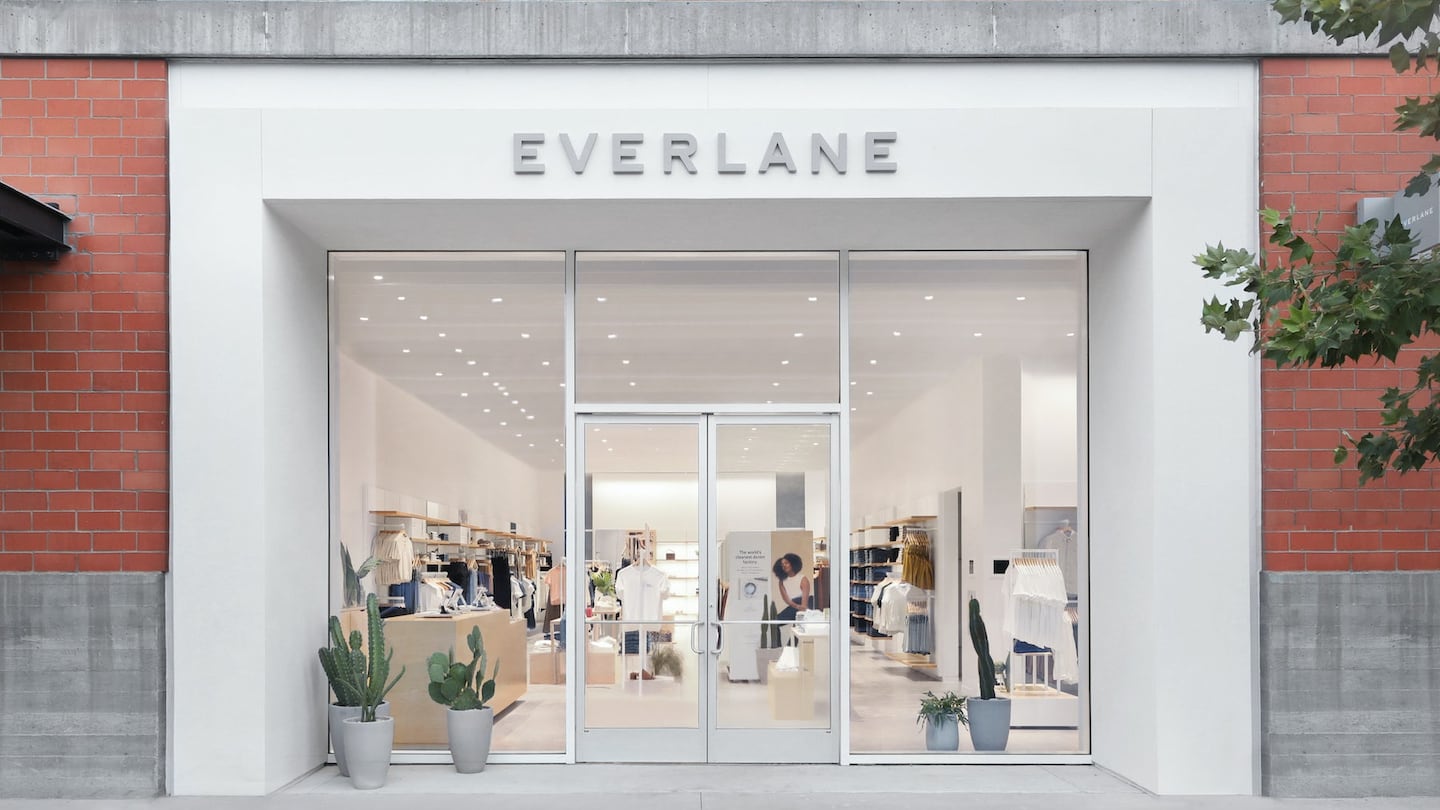
The Business of Fashion
Agenda-setting intelligence, analysis and advice for the global fashion community.

Agenda-setting intelligence, analysis and advice for the global fashion community.

LONDON, United Kingdom — It's been a tumultuous few months for Everlane, but a major new investment round led by LVMH-linked L Catterton is giving the brand a much more stable outlook. The direct-to-consumer company known for its promise of radical transparency announced an $85 million funding round led by the private equity powerhouse Friday. The terms of the transaction were not disclosed.
It's a major cash infusion and big endorsement from a financing firm known in the industry for its expertise scaling up young, buzzy brands. L Catterton's other investments include Ganni, ba&sh and Peloton. Everlane will also gain two new board members: Jonathan Mildenhall, co-founder and Chief Executive of TwentyFirstCenturyBrand and L Catterton partner Matt Leeds.
It's a particularly important and delicate undertaking for Everlane. Like the rest of the industry, the brand has been buffeted by the economic fallout from the Covid-19 pandemic. But it must also work to repair its image, which has been tarnished this year by a series of allegations of union busting and anti-Black behaviour. In July, it was the subject of a New York Times article that detailed issues with the company's internal culture and reported Chief Creative Officer Alexandra Spunt would be stepping down from her role.
Last month, Everlane published a series of actions it is taking to address the criticism. Among other things, it committed to diversify its leadership and earmarked an annual budget of $100,000 a year to provide education and advance inclusivity internally. It's joined the Black in Fashion Council, a new coalition founded by Teen Vogue Editor-in-Chief Lindsay Peoples Wagner and publicist Sandrine Charles to advance inclusivity within the industry, and partnered with two independent agencies that specialise in helping shift workplace policies and educating teams.
ADVERTISEMENT
It's been a hard fall for a company that built its brand around a promise of fair and ethical practice. Everlane launched in 2011, one of a handful of West-coast-based brands to enjoy rapid growth over the last decade with a nimble digitally-native offering and a savvy marketing strategy that capitalised on consumers' growing interest in sustainability. The company promised to disclose its pricing markups, manufacturers and environmental footprint to customers. Its minimalist aesthetic and elevated basics drew in fans, and its e-commerce model that bypassed middlemen helped keep margins and prices affordable. In 2016, its reported value was around $250 million.
Everlane plans to use its new funding to drive growth, with a particular focus on building out its sustainability commitments and solidifying its people programmes and teams.
Related Articles:
[ Case Study: How to Talk to Customers About Fashion's Dirty SecretsOpens in new window ]
[ The Case for Radical TransparencyOpens in new window ]
[ Why Private Equity is Still Chasing Fashion Opens in new window ]
As the German sportswear giant taps surging demand for its Samba and Gazelle sneakers, it’s also taking steps to spread its bets ahead of peak interest.
A profitable, multi-trillion dollar fashion industry populated with brands that generate minimal economic and environmental waste is within our reach, argues Lawrence Lenihan.
RFID technology has made self-checkout far more efficient than traditional scanning kiosks at retailers like Zara and Uniqlo, but the industry at large hesitates to fully embrace the innovation over concerns of theft and customer engagement.
The company has continued to struggle with growing “at scale” and issued a warning in February that revenue may not start increasing again until the fourth quarter.